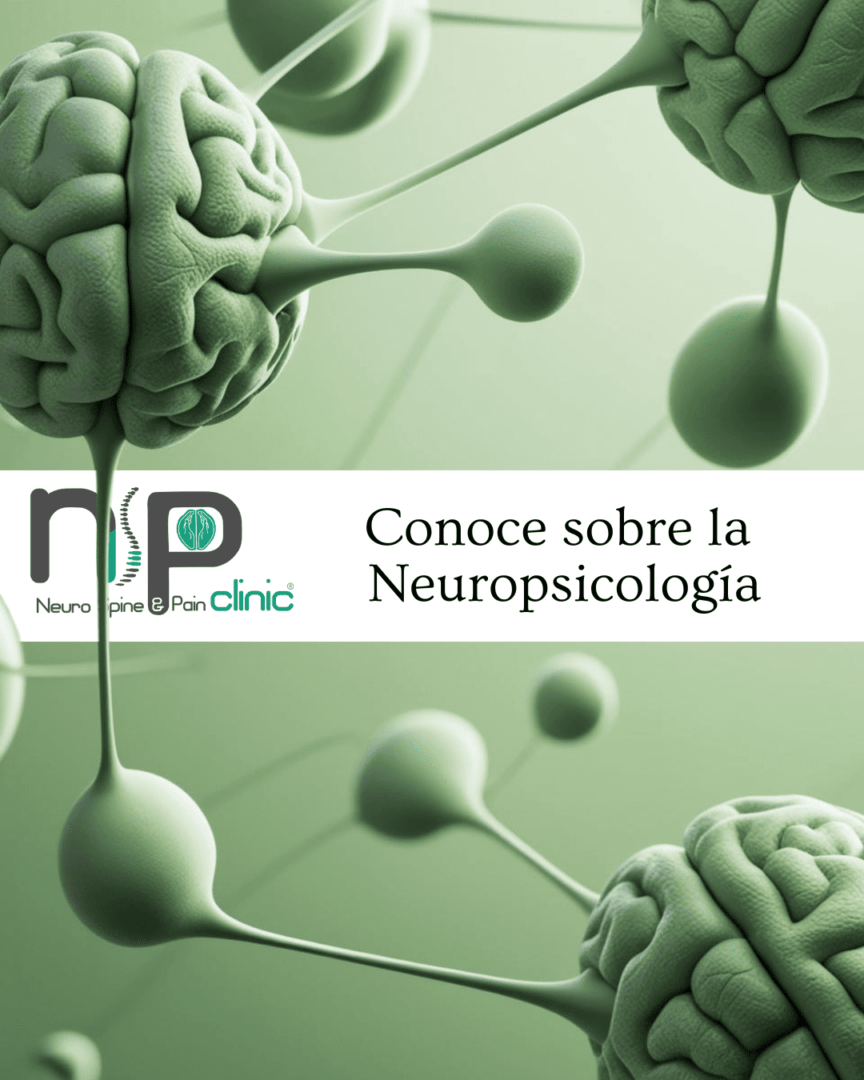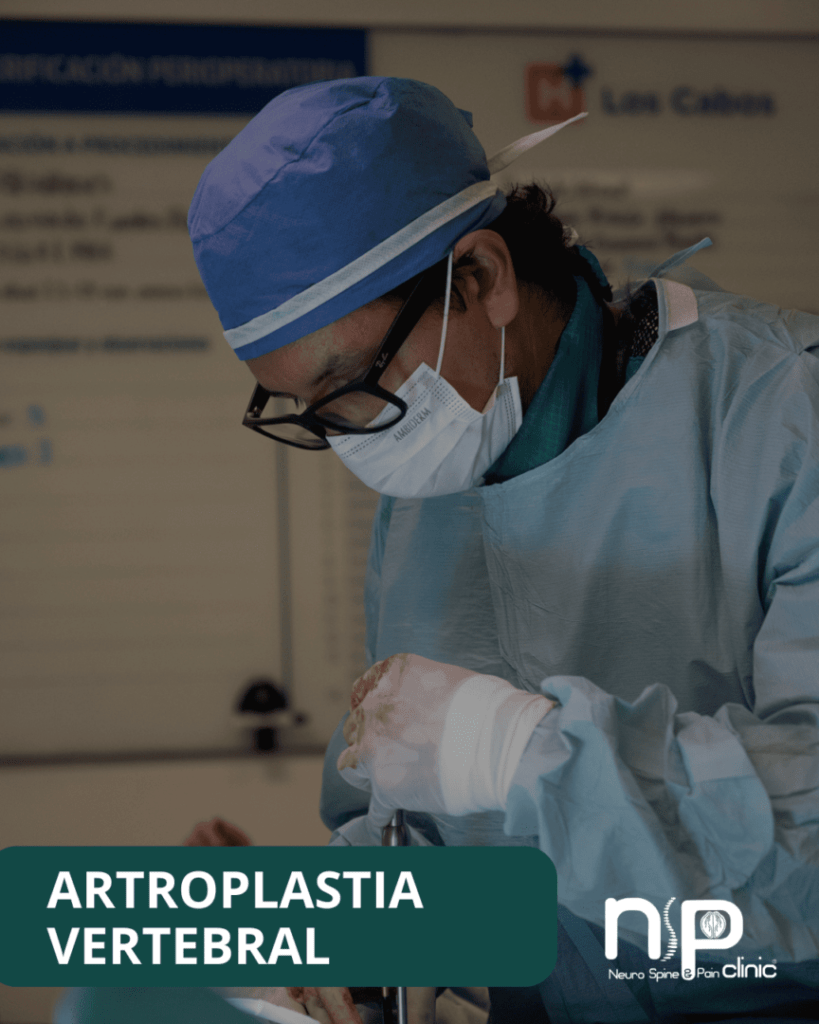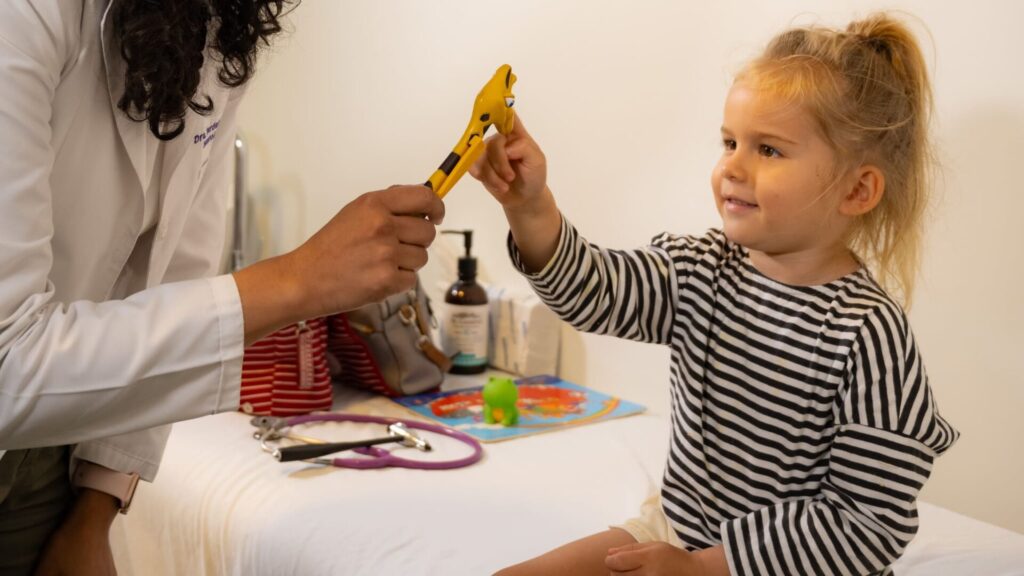
The pediatric neurology specialists who are part of the NSP Clinic medical team play a fundamental role in the care and treatment of children and adolescents with neurological disorders. With a solid academic background and extensive clinical experience, our specialists are recognized for their dedication, compassion, and experience in caring for pediatric patients and their families.
Pediatric neurology is a fascinating and vital medical specialty that focuses on the diagnosis and treatment of neurological disorders in children, from newborns to adolescents. In this exciting field, doctors are dedicated to understanding and addressing a wide range of neurological conditions that can affect the development and well-being of children in their earliest stages of life.
From the moment they are born, children's brains are constantly developing and growing. During the early stages of life, crucial neural connections are established that will form the basis of your cognitive, emotional, and physical functioning later in life. Pediatric neurology is concerned with monitoring this process closely, identifying any irregularities that may arise and providing early interventions when necessary.
Neurological disorders in children can manifest in many different ways and can affect areas such as movement, speech, cognition and behavior. Some of the most common conditions that pediatric neurologists see include:
Epilepsy: It is a neurological disorder characterized by recurrent seizures. Pediatric neurologists evaluate and manage seizures in children, prescribing antiepileptic medications and, in some cases, considering surgery for more severe cases.
There are different types of epilepsy in children, which can vary in terms of clinical presentation, seizure frequency and possible underlying causes. Some of the most common types include idiopathic epilepsy, which has no identifiable cause, and symptomatic epilepsy, which occurs as a result of a brain injury or an underlying medical condition.
Multiple sclerosis: Multiple sclerosis (MS) is a chronic disease of the central nervous system (CNS) in which the body's immune system attacks myelin, the protective layer that covers nerve fibers in the brain and spinal cord. This results in inflammation and damage to myelin, which interferes with the nervous system's ability to transmit signals properly.
Developmental disorders: These may include autism spectrum disorder (ASD), attention deficit hyperactivity disorder (ADHD), motor developmental disorder, and other neurodevelopmental disorders that affect a child's cognitive and behavioral abilities.
Autism Spectrum Disorder (ASD) is a neurological condition that affects brain development and manifests itself in problems with communication, social interaction, and repetitive or restrictive behaviors.
Attention Deficit Hyperactivity Disorder (ADHD) is a common neurological disorder that affects children and sometimes adults. It is characterized by attention problems, hyperactivity, and impulsivity that can interfere with daily functioning and academic performance.
Cerebral palsy: It is a movement and posture disorder that occurs due to injuries or abnormalities in the developing brain. Pediatric neurologists work with other health professionals to manage symptoms and improve the quality of life of children with cerebral palsy.
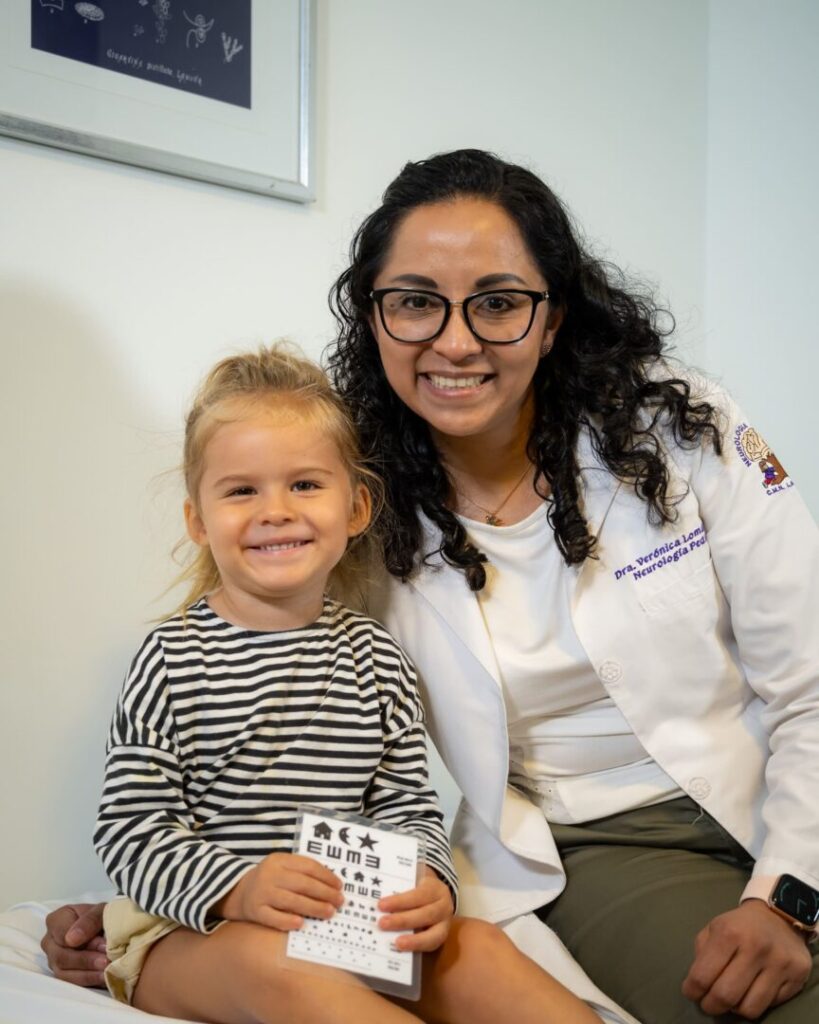
There are several types of cerebral palsy, which are classified according to the type of movement and the part of the body affected. Common types include:
Spastic: Characterized by rigid and tense muscles.
Dyslexic or Dyskinetic: Characterized by involuntary and uncontrolled movements.
Ataxic: Characterized by balance and coordination problems.
Mixed: Combination of two or more types of PC.
Autoimmune diseases: Autoimmune diseases in children are disorders in which the body's immune system mistakenly attacks its own tissues, just as in adults. Although less common than in adults, these conditions can affect children of all ages, from babies to teenagers.
Post-infectious encephalitis: It is a condition in which inflammation develops in the brain after a viral or bacterial infection. This inflammation can cause a variety of neurological symptoms that can be serious and potentially dangerous if not treated properly.
Migraines: Migraines can also affect children. Pediatric neurologists can diagnose and treat migraines in children, helping them find pain relief and manage triggers.
Childhood migraines, also known as pediatric migraines, are a type of recurring and debilitating headache that affects children and adolescents. Although migraines are more common in adults, they can also occur in children, and can have a significant impact on their quality of life and daily functioning.
Sleep disorders: Sleep problems in children, such as insomnia, sleep apnea, and circadian rhythm disorders, can affect their health and development. Pediatric neurologists can evaluate and treat these disorders to improve children's sleep quality.
Sleep disorders in pediatric patients are conditions that can affect the quality and quantity of sleep in children and adolescents. These disorders can have a significant impact on children's physical, emotional and cognitive well-being, as well as their daily functioning and quality of life.
Neuromuscular disorders: These include conditions such as muscular dystrophy, myasthenia gravis, and other diseases that affect muscles and neuromuscular function. Neuromuscular disorders in children are conditions that affect the peripheral nervous system and muscles, causing muscle weakness, spasms, muscle stiffness, and other symptoms related to muscle function and movement control.
Headaches: In addition to migraines, children may experience other types of headaches, such as tension headaches and cluster headaches. Pediatric neurologists can evaluate and treat these conditions to improve children's well-being.
Tension headaches in children are headaches that are characterized by a feeling of pressure or tightness in the head. They can be episodic or chronic and can be associated with factors such as stress, anxiety, poor posture, lack of sleep and muscle tension. Cluster headaches are rare in children, but they can occur. They are characterized by severe, repetitive headaches that occur in cycles or clusters, usually on one side of the head.
Cluster headaches may be accompanied by symptoms such as watery eyes, nasal congestion, and agitation. These are just a few examples of the many conditions that pediatric neurologists may encounter in their clinical practice. Each case is unique and requires an individualized approach to diagnosis and treatment, with the goal of improving the quality of life and development of affected children.
The Importance of Early Diagnosis and Comprehensive Treatment
In pediatric neurology, early diagnosis and comprehensive treatment are essential to optimize long-term outcomes for children. Identifying and addressing neurological disorders early can help minimize complications and improve neurological development and function. Advances in medical technology, such as MRI and genetic testing, have significantly improved our ability to diagnose and treat these disorders more accurately and effectively.
As we advance the field of pediatric neurology, a world of exciting possibilities opens up. Continued research and advances in the understanding of childhood neuroscience are transforming the way we diagnose and treat neurological disorders in children.
As part of the NSP Clinic team, Dr. Loman and Dr. Mellado collaborate closely with other medical specialists, therapists and healthcare professionals to provide their patients with comprehensive and coordinated care. Their multidisciplinary approach ensures that each child receives an individualized treatment plan that addresses their specific needs and improves their long-term quality of life.
In conclusion, pediatric neurology plays a crucial role in children's health care, addressing a variety of neurological challenges that can affect children's development and well-being. With a focus on early diagnosis, comprehensive treatment and child-centered care, we are committed to providing the best possible care to our pediatric patients and helping them reach their full potential.
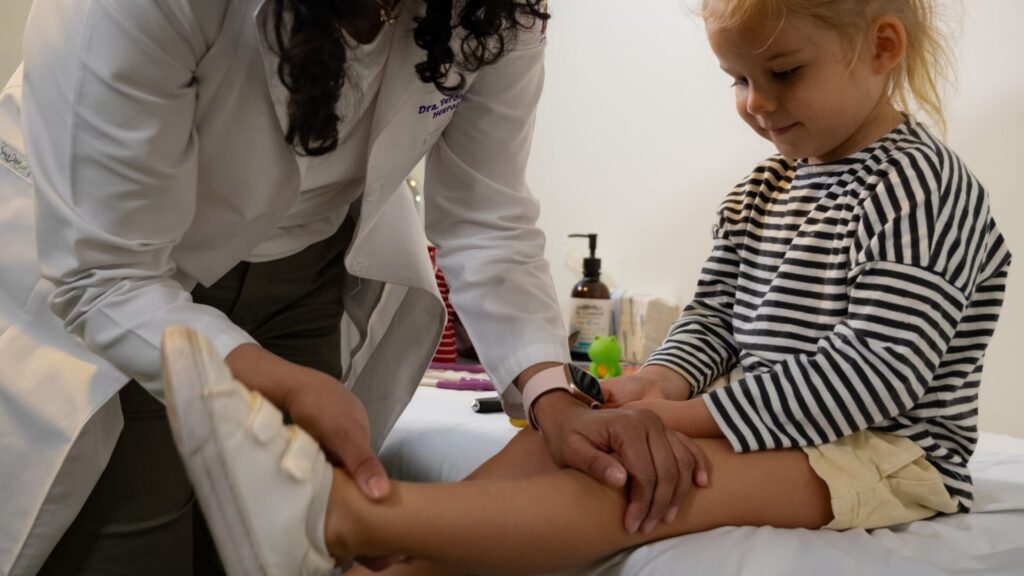
To schedule an appointment with our pediatric neurologists at NSP Clinic, it is very simple, you can dial the number +52 624 213 7915 and send an email: contacto@nsp.clinic to check availability. You can find contact information on the NSP Clinic website or by clicking the following link: https://www.nsp.clinic/#contact



